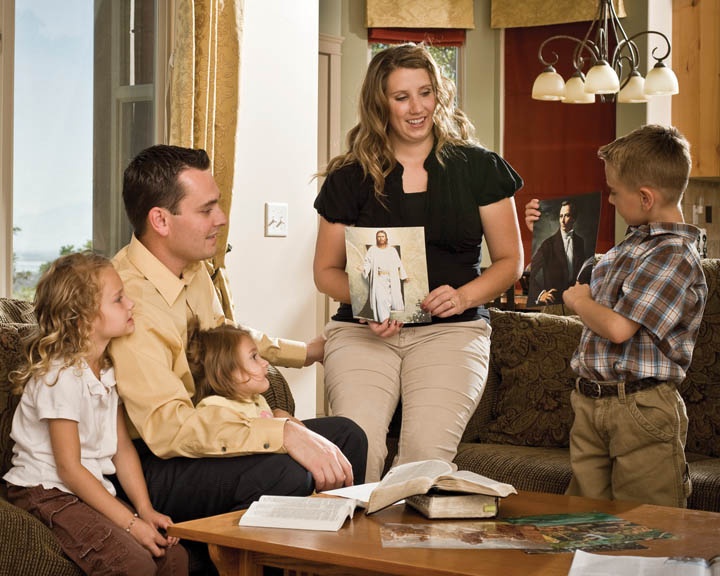When we understand the true doctrine of sexuality, we equip ourselves to teach our children appropriately. A significant cross-section of our society, particularly the older generations that are now grandparents and great-grandparents, grew up with some incredibly distorted ideas about sexuality. The fundamental lesson propagated through some families is comprised of two parts, one false, one true, which when superimposed upon one another make for a disturbing message. The true message is that sexual intimacy is something you save for the person you love the most. The false message is that sex is bad, dirty, degrading or just plain yucky. When you superimpose these two messages, you get a parent effectively teaching that sex is dirty, degrading, yucky and you want to save it for the person you love the very most. Where’s the motivating power in that distorted message to help youth keep themselves morally clean?
I think one of the causes for this distortion is that parents desperately want their children to stay morally clean, and they fear that they will become sexually active, so they repeat a very strong “No” message with either implicit or explicit warnings that it is “bad.”
The true doctrine is much more exalting. Sexual intimacy is great, and it’s supposed to be. It’s given to mankind by our Creator, and it’s not just for procreation. President Kimball spoke directly and powerfully to the tremendous healing and unifying power of sacred intimacy within marriage. Children need to understand that sexual intimacy is something to look forward to, that it’s good and positive, but that it’s given to us by the Lord by covenant in the ordinance of marriage. A child who understands the doctrine of sexuality understands that sexual intimacy is something tremendous, and they should look forward to marriage and the temple in part because those expressions are then available.
The problem that many of the youth encounter is that their exposures to sexuality are always accompanied by a loss of the Spirit, so it’s easy to equate sex with spiritual darkness. I find it helpful to draw the following analogy: Many adult members of the Church have been to the temple and have received their endowment. But if I stood in a chapel full of endowed church members and began reciting the temple ceremonies from memory, what would the Spirit do? It would leave so fast it would make your head spin. But why would the Spirit leave? Isn’t the endowment ceremony true? And isn’t everyone in the room endowed? I mean, don’t we all know what it’s actually about? We’ve all been there, right?
So why does the Spirit leave in that situation? Context. That which is sacred cannot be dragged out of its sacred context without a loss of the Spirit. When you place that which is sacred into its sacred context, the Spirit will bear witness of it, and will sanctify the exercise of it. We live in a generation in which sexuality is dragged kicking and screaming out of its sacred context and then flaunted in the streets and in the gutters. The Spirit will withdraw when something that sacred is treated so wantonly.
I find equating sacred sexual intimacy with the blessings of the temple to be an appropriate and powerful teaching tool, to help our youth to value sexual intimacy as a powerful and sacred gift whose exercise is a tremendous blessing to be eagerly awaited, while at the same time understanding that the exercise of it is given by the Lord in the covenant of marriage. It’s more motivating for a young person to keep himself or herself chaste because it’s something desirable to be kept sacred than because it’s something degrading to be bottled up until it can be guiltily uncorked.
Photo by More Good Foundation.

